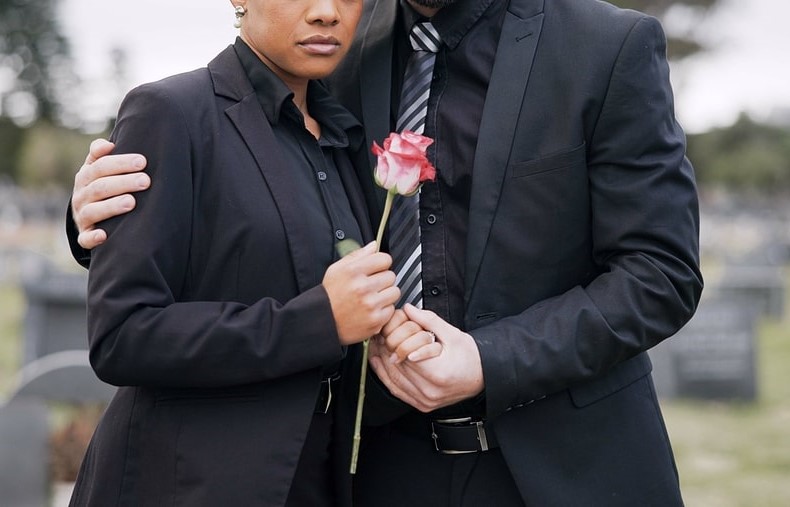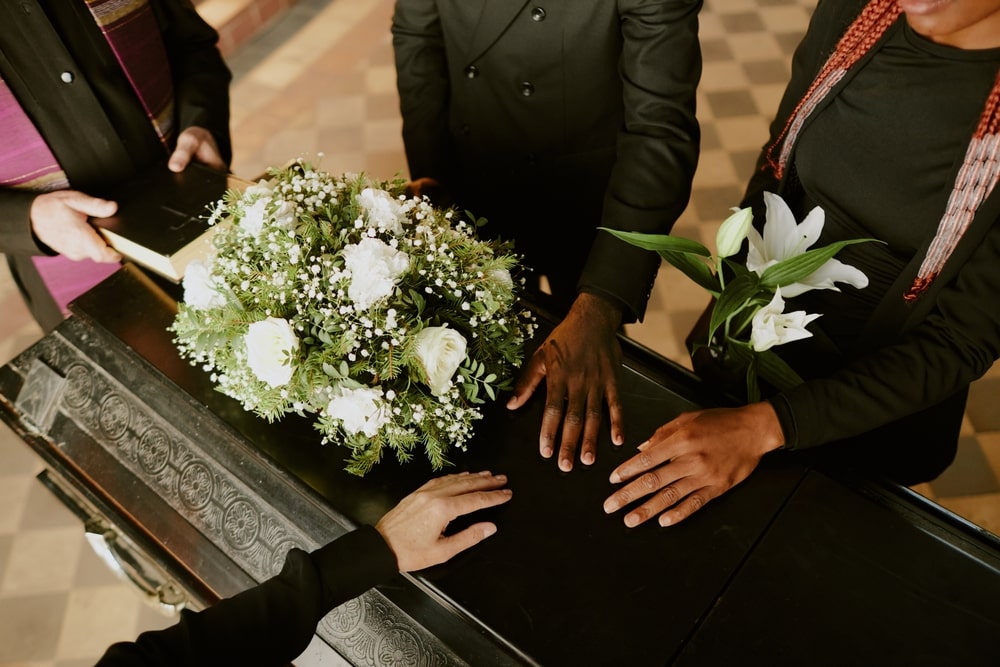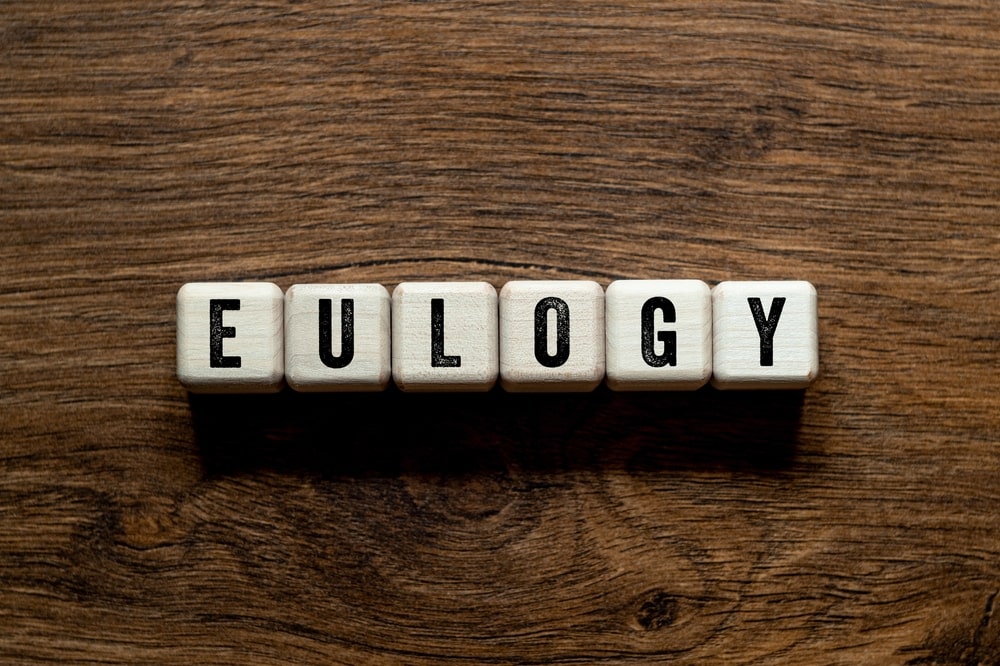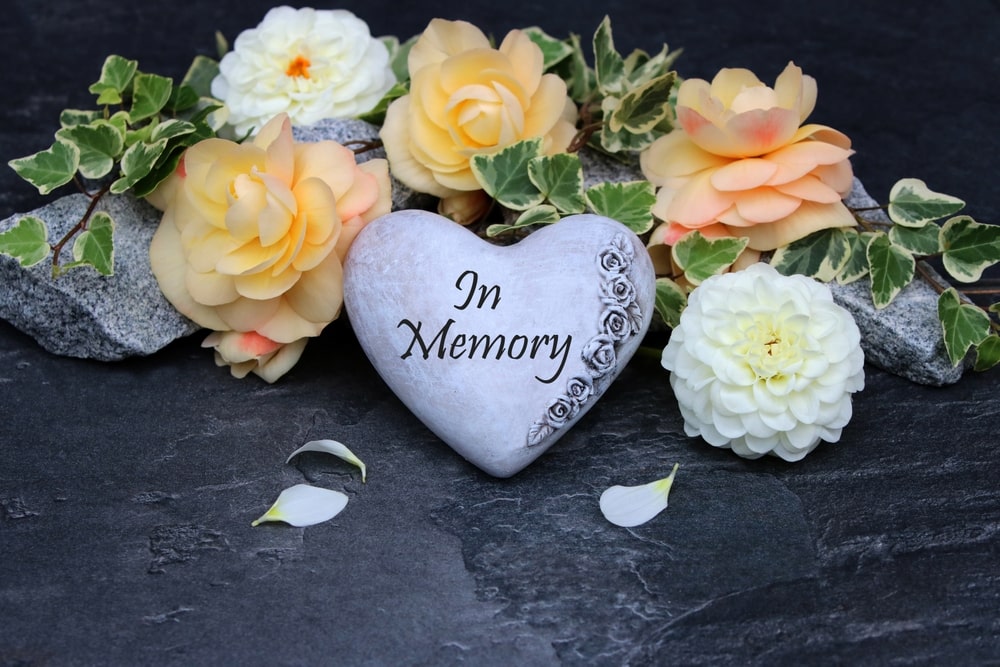
After losing a loved one, you will have to make many decisions regarding what type of services will best honor their unique life. As you speak with a funeral director, they may ask you, “Would you like to have a viewing or a visitation?” These two terms may seem interchangeable, but they actually aren’t. Let’s talk about the key difference between them.
What is a Viewing?
For some people, it’s important to physically see a loved one before they are laid to rest. At a viewing, the deceased’s body is available to “view,” often lying in a casket with flowers or memorabilia nearby. You can choose to have a public viewing or a private, family-only viewing.
The act of viewing the person can play an important role in the grieving process. It’s an opportunity to say goodbye in person, to touch that special person one final time, to kiss their forehead in farewell. It’s also an opportunity to truly acknowledge the reality of the death. Sometimes, the truth of a loved one’s death doesn’t feel real at first, but by seeing their body for yourself, the reality of the death begins to sink in. And as hard as it may be, accepting the reality of the death is an important aspect of the healing process.
Additionally, the viewing may also provide an opportunity to pay respects to the surviving family. It’s not required that the family be present at the viewing, but most of the time, they are. The viewing gives mourners access to the grieving family and the chance to offer condolences and support following the death.
What is a Visitation?
On the other hand, a visitation is a little different. The surviving family must be present, but the deceased’s body is not visible. While there may be photos, an urn, or even a closed casket, there is no viewing of the body itself.
Instead, the focus of the visitation is on paying one’s respects by offering support and condolences to the grieving family. It’s a time for surviving family members to make themselves available to friends, family, co-workers, and neighbors who want to offer their sympathies. It’s also a time to share stories about the deceased and comfort each other through shared grief.
Because the funeral service itself has an order of events, it’s not always the best time to offer support and condolences. The visitation is more casual and provides the chance to speak freely and as long as you want without the time constraints of the funeral service.
Are there Any Similarities?
Absolutely! Here are a few ways in which the viewing and visitation are similar to each other:
- They may both include an opportunity to pay respects to surviving family members
- Each event may be personalized to reflect the life of the person who has died
- There may be refreshments or a meal provided, if the family wishes
- The event can take place at the funeral home, church, community hall, or even a residence (depending on local regulations)
- It doesn’t matter whether you choose burial or cremation, you can still have a viewing or visitation (though embalming is generally recommended for the viewing)
Could I Have a Viewing AND a Visitation?
Yes, you could, but to keep things less stressful for the grieving family, it’s often recommended to simply have a viewing with the family also present. By doing so, you cut down on the number of events the family must attend while still achieving the benefits of both a viewing and a visitation.
Is a Visitation or Viewing Required?
Neither of these events are required. It’s entirely up to your personal preferences whether you’d like to include either one. They do have their benefits, so speak with your family and the funeral director as you decide whether to include them or exclude them from a loved one’s final tribute.
Are There Times When a Viewing is Not Recommended?
Yes, there are times when the funeral director may recommend that the family skip the viewing. Most of the time, this recommendation is made because the body is not as presentable. While funeral homes can do wonders with cosmetics or restorative arts, there are times when it’s not enough to restore a loved one’s appearance to how you remember them. In these cases, the funeral director will use their professional judgment and suggest you skip the viewing. The final decision will be up to the surviving family members.
When Does a Viewing or Visitation Occur?
As you plan the funeral service with your chosen funeral director, you can discuss the options. The two most common choices are:
- Have the visitation/viewing the evening before the funeral service. This allows anyone unable to attend the funeral service a secondary opportunity to say goodbye and offer their support.
- Have the visitation/viewing the hour prior to the funeral service. This option means that the grieving family only has one event to attend, but there may be some people unable to attend due to their own work or personal schedules.
Ultimately, it’s up to the family to decide what’s best for their own grief and for honoring their loved one’s life.
Personalization is Key
Now that you have a better understanding about the key differences between a viewing and a visitation, it’s essential to discuss the importance of personalization. For an event to be meaningful, it must also be personalized. You can go simple or elaborate, but the personal touches will make the viewing or visitation that much more special to the grieving family and any other mourners.
Here are a few resources that will help you personalize the event, whether you choose a viewing or a visitation:



















































